On September 28, Boao Forum for Asia (BFA) held the Second Conference of International Science, Technology and Innovation Forum (ISTIF). As a major forum of the conference this year, the session “Science, Technology and Innovation Propels Global Public Health Securit” was successfully held.
Weide Zhong, one of the national hundred million talents in the new century and Deputy Chairman of the Youth Committee of the Chinese Medical Association Urology Branch, hosted the session.Through online and offline interactions, experts from the field of public health in China and overseas discussed the application of science and technology to jointly serve global public health, and to build a community of human destiny.
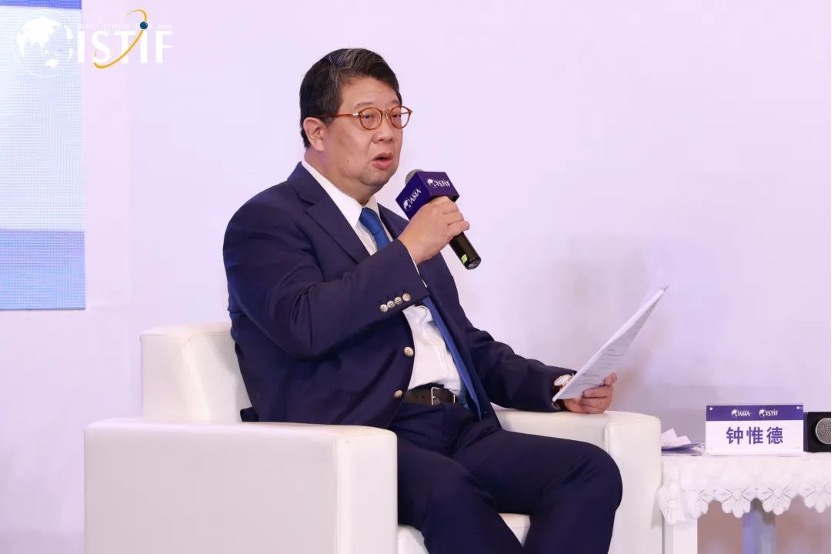
Weide Zhong

Tom Frieden
Tom Frieden, president and CEO of Resolve to Save Lives Global and former director of the CDC, emphasized, "We need to build public trust globally, which cannot be built overnight under emergency conditions, so that every public health system is equipped with real-time data to support real-time decision making and experts with field experiences in controlling pandemics."
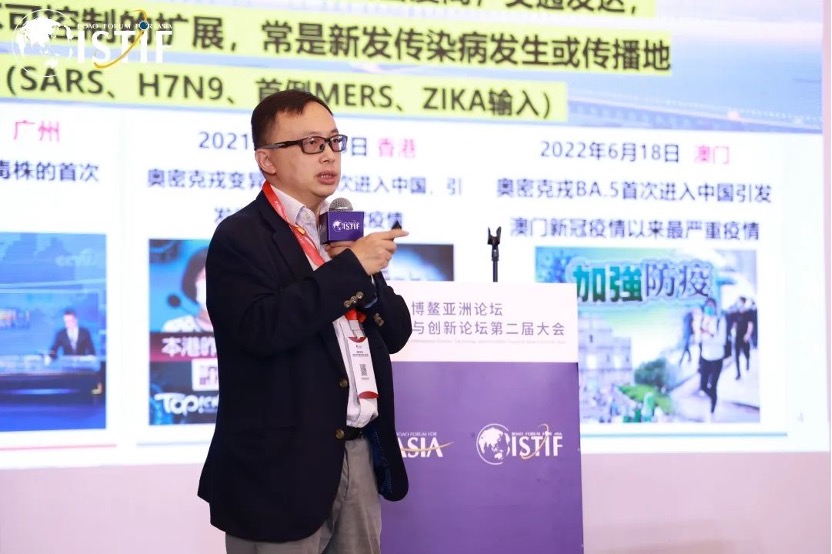
Zifeng Yang
Zifeng Yang, deputy director of the National Key Laboratory of Respiratory Diseases, Guangzhou Medical University, discussed the construction and practice of using big data and artificial intelligence technology to predict the outbreak of respiratory viruses. He pointed out that the integration of big data + AI will significantly improve the accuracy of respiratory virus early warning prediction. "The team from Guangzhou Institute of Respiratory Health has constructed a scientific prediction model featuring social relationship network parameters, incorporating propagation dynamics model and artificial intelligence algorithm (time series model). The model has now accumulated epidemic predictions for a number of domestic provinces and cities with an error rate of less than 15%, providing an important reference for epidemic early warning predictions."
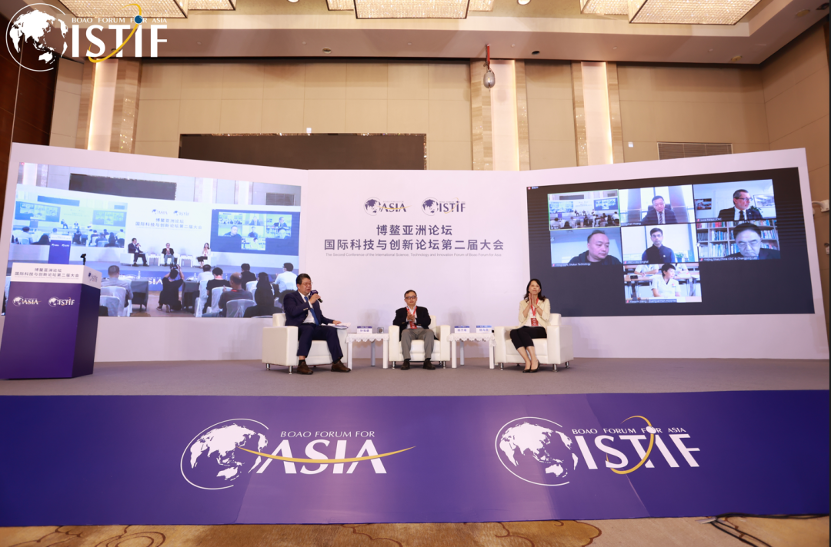
During the perspective discussion, guests actively contributed to the theme of “Science, Technology and Innovation Propel Global Public Health Security”. Guests include Luca Falqui, Head of the Health Program from East Asia Regional Office, International Committee of the Red Cross (ICRC)Ltd; Qingshan Huang, CEO of Western Securities Innovation Investment Limited; Joy Singhal, Director of Health, Disaster, Climate and Emergency Management Program, IFRC Asia Pacific Office; Yiming Shao, Chief Expert on AIDS at CDC; Xiaopin Wang, Secretary of the Party Committee, Guang’’anmen Hospital at Chinese Academy of Traditional Chinese Medicine; Yiting Wan, Chief Development Officer of Shu Kun Technology; Haiying Yang, Vice President of AstraZeneca China; and Zifeng Yang.
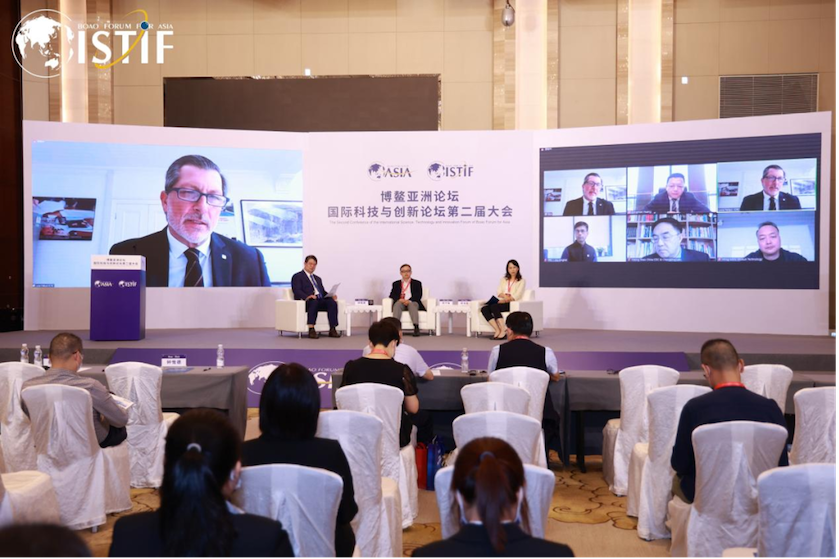
Luca Falqui
Luca Falqui interpreted global public health security from the ICRC’’s humanitarian perspective. He also raised the issue of how to use scientific and innovative tools to address the basic health requirements of vulnerable populations and areas affected by armed conflict and violence. Moreover, Falqui emphasized the importance of international solidarity, acknowledged the important contribution of China to global health governance, and suggested that multi-stakeholder cooperation will be the key to preventing and responding to future epidemics.
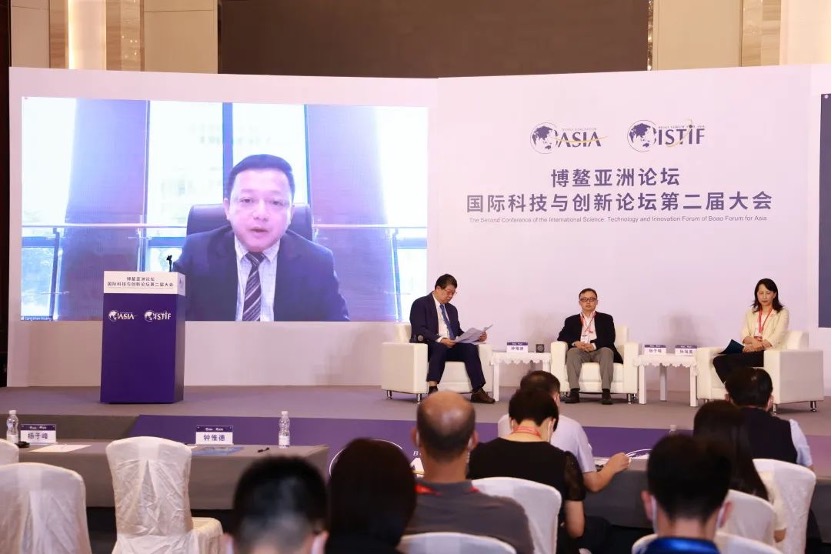
Qingshan Huang
Qingshan Huang pointed out that "a good medical device or advanced therapy requires long-term development, iteration, approval, the establishment of the main production and promotion to grassroots areas. This process requires a strategic capital partner who can accompany for a long time, also, take the initiative to help medical research enterprises to promote intellectual property protection, enterprise organization structure, and to solve financial and legal problems during the process of development.” In Huang’s suggestion, long-term strategic capital can be used to assemble all parties through capital ties, and transform some great ideas or lab products into medical products that can be introduced to the grassroots and market.
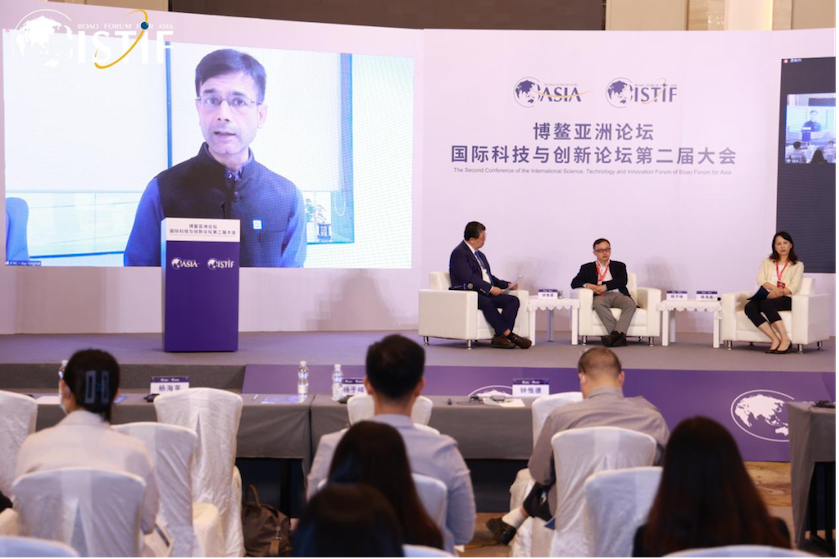
Joy Singhal
Joy Singhal illustrated the way in which the International Federation of Red Cross and Red Crescent Societies and its member national societies are using technological innovation to contribute to global health security in the humanitarian field. He supported his point with three case studies: community disease surveillance networks, cash or voucher assistance, as well as community communication and feedback mechanisms.
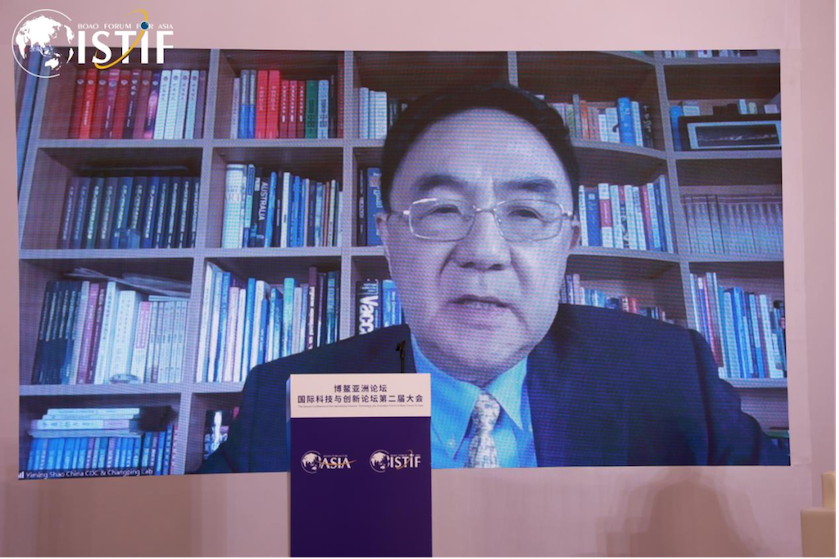
Yiming Shao
Yiming Shao offered two suggestions: First, a global surveillance system for emerging and emergent infectious diseases and its regional surveillance centers should be established by WHO and cooperated member states to provide early warning for early pandemic detection. Second, given that the threat of emerging infectious diseases to human security is no less than that of traditional warfare, a UN global health security emergency response force capable of responding quickly and effectively to new outbreaks of infectious diseases globally and regionally should be established as soon as possible. This force should refer to the mechanism of the UN peacekeeping force to assist member states in controlling epidemics in the early stages and localized areas.
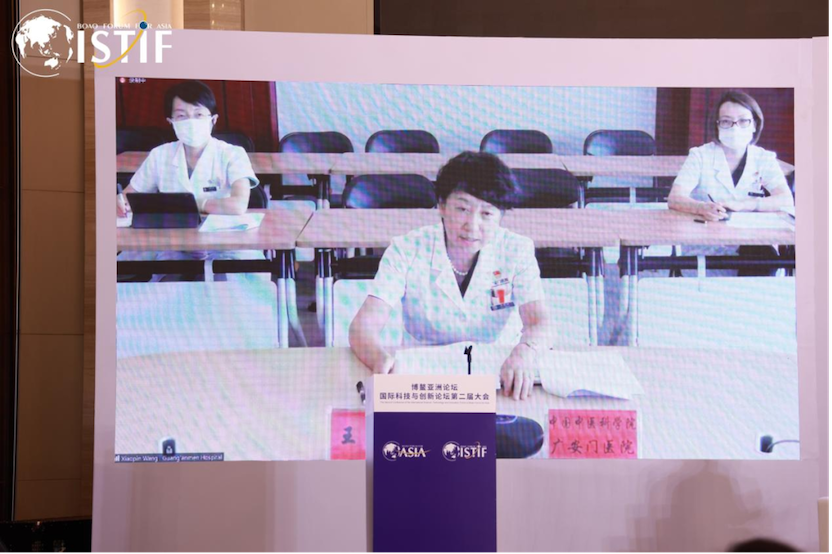
Xiaopin Wang
Xiaopin Wang introduced the role of TCM and public TCM hospitals in providing quality medical services, undertaking major healthcare tasks and responding to public health emergencies. Wang pointed out that in the future, the construction of TCM service system, the creation of a national TCM medical center, the construction of TCM epidemic disease disciplines and the creation of a national TCM service export base should be taken into account to further enhance the TCM service guarantee capacity. "More importantly, it is necessary to further strengthen the investment and management of resources for Chinese medicine and the combination of Chinese and Western medicine. We will build a combined Chinese and Western medicine service system with Chinese characteristics in a practical and mindful manner, and contribute to the public health system.”
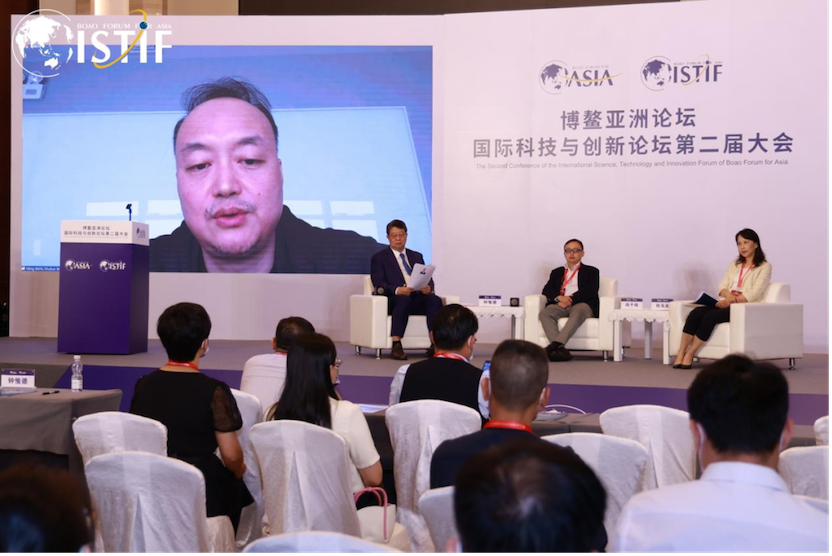
Yiting Wan
Yiting Wan reported, after the outbreak of the epidemic, Shu Kun Technology successfully developed an AI-assisted diagnosis system for Covid-19 in around ten days. Afterwards, his team offered the system to Wuhan Hospital for free. "In the global war against the epidemic, Chinese technology has contributed strong hardcore power and provided great support to win this hard battle. As a Chinese intelligent medical and health technology company Shu Kun Technology not only supports the anti-epidemic with the world’’s leading AI-assisted diagnosis technology to help overcome the shortage of medical resources, but also allows health insurance funds and medical expenditures to be spent on the cutting edge through early screening and early detection, accurate diagnosis and precise treatment to reduce health insurance expenditures."

Haiying Yang
Haiying Yang indicated, that as of June 2022, AstraZeneca has supplied 3 billion doses of vaccines to more than 180 countries all over the world. AstraZeneca is also actively working with local companies in China to supply active vaccine ingredients to a very large number of countries worldwide, representing 50% of AstraZeneca’’s vaccine supply to the global New Crown Vaccine Initiative (COVAX), with nearly 468 million doses of vaccine supplied to countries and markets outside of China.

Zifeng Yang
Zifeng Yang proposed that the public health outlook in the new era is a cross-fertilization, information interaction, dynamic evolution, and that the world should work together towards the goal of prioritising people’’s lives and health.